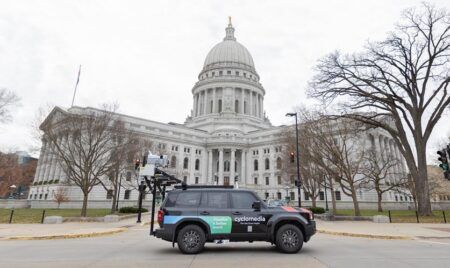Highways England (HE) has revealed that its public consultation for a new Lower Thames Crossing was the largest ever for a UK road project, with more than 47,000 people taking part.
The consultation, which closed two months ago, invited views on proposed routes for a new road crossing below the Dartford bridge and tunnel, which would be the first new road crossing for the Thames east of London for 25 years and would unlock massive economic benefits for the region and the whole country. Nearly 30,000 people had their say online, with a further 3,700 people completing a paper questionnaire, and around 13,000 sending a letter or an email in response to the consultation. More than 500 local government and industry groups also responded to the consultation. In total, 47,034 responses were received. The responses are now being analyzed, before a final decision on a preferred route is made by the UK government, which is expected later this year.
The new road could open in 2025 and would open up new areas for economic growth, relieve congestion at the existing Dartford Crossing, and improve the resilience of the road network by providing a new alternative link across the Thames. The proposed Lower Thames Crossing will be the first new crossing of the River Thames east of London since the Queen Elizabeth II Bridge opened at Dartford 25 years ago.
In 2014, following a public consultation led by the Department for Transport (DfT), two locations were shortlisted for a new bridge or tunnel across the river: one near the existing Dartford Crossing and the other linking the M2 with the M25 via the A13, with a possible further link to the M20. Since then, HE has carried out detailed work with a wide range of stakeholders to assess the shortlisted options, and develop possible routes at each location.
The route proposed at consultation would run from the end of the M2, crossing under the river just east of Gravesend and Tilbury, and joining the M25 between junctions 29 and 30. A consultation on the proposals ran from January 26 to March 24 this year, and will be used to help decide a preferred route for the crossing by the Secretary of State later this year. From there, HE will develop the next stage of the project’s assessment and design, which will be the basis for a further public consultation, following which HE will make a Development Consent Order application, beginning the formal planning process for the new road. Subject to the necessary funding and planning approvals, the new crossing would open in 2025, if publicly funded. If private funding is also used to meet the costs of the project, it is anticipated the crossing would be open by 2027.
HE’s consultation manager, Martin Potts, said, “This is a fantastic level of engagement, and I am grateful to everyone who took the time to take part in the consultation. We set out to reach as many people as possible, to let them know about our plans and to seek their views, and the public’s response has exceeded our expectations. The route for a new Lower Thames Crossing is a massive decision and it is vital that we get it right. I am very encouraged at the significant number of responses that we have received, as they will really help us to make the best possible recommendation to government about the route that this vital new road link should take.




